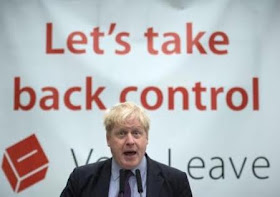Women MPs in an open letter to the Duchess of Sussex: "As women MPs of all political persuasions, we wanted to express our solidarity with you in taking a stand against the often distasteful and misleading nature of the stories printed in a number of our national newspapers concerning you, your character and your family. On occasions, stories and headlines have represented an invasion of your privacy, without good reason as far as we can see. Ever more concerning still, we are calling out what can only be described as outdated, colonial undertones to some of these stories."
Adam Boulton on SKY News: "Of course it is the first duty of journalists to report what they are told - but there is an important difference between saying 'the government says it is going to do such and such' and 'I can reveal from my exclusive sources that the government is going to do such and such.' Journalists vie to have the best "sources" but spin doctors on both sides are using this against them."
Helen Lewis in The Atlantic: "So why has 'Get Brexit done' gained such traction? Because of an unspoken pact between politicians and the media over the framing of the process. It has been presented as a tense drama that will lead to a satisfying end-of-season finale—a series of “knife-edge votes” that will eventually deliver a deal, at which point Britain can revert to its pre-2016 reality of ceasing to care much about the existence of the EU."
Gary Younge in the Guardian: "When powerful people say things, too many journalists simply convey them, acting not as critical interlocutors but convenient conduits. The fact that a politician has said something, apparently, makes it news. This is all too often conveyed neat – uncritiqued, unfiltered and unprocessed. It is then injected into the conversational bloodstream caffeinated by social media. It’s as though the act of journalism is limited to getting the quote and distributing, and does not extend to verifying it, contextualising it and making sense of it. When those quotes are non-attributed – 'a senior No 10 source' or 'sources within the cabinet' – the risk of the journalist becoming an enabler and participant is real."
Richard Fletcher in The Times [£]: "The Daily and Sunday Telegraph newspapers have been put up for sale as their owner, the Barclay family, reviews its multibillion-pound portfolio of British investments."
MailOnline reports: "Donald Trump's White House has discontinued delivery of print editions of The New York Times and The Washington Post, according to administration officials, and he has ordered all federal agencies to follow suit. 'Not renewing subscriptions across all federal agencies will be a significant cost saving – hundreds of thousands of taxpayer dollars will be saved,' said White House Press Secretary Stephanie Grisham."
Ofcom annual report on the BBC: "Although the BBC's online news services currently reach a broad audience, the evidence shows that heavier online users are generally those in older age groups. BBC News has long been aware of the challenge it faces in engaging younger people, who are increasingly consuming news via social media and news aggregators such as Apple News."
North Wales Daily Post editor Andrew Campbell after Coldplay placed a classified ad in the Post giving exclusive track listings of the band's new album: "It's great to see even global rock stars Coldplay recognise the unbeatable value of advertising in the Daily Post."
Roy Greenslade @GreensladeR on Twitter: "A factual headline, in the Dundee Courier almost good enough to rival the News of the World's famous "Nudist welfare man's model wife fell for Chinese hypnotist from the Co-op bacon factory."
- Here is the bizarre story behind the News of the World's famous headline, as told by Roy Stockdill on Gentleman Ranters
[£]=paywall










































